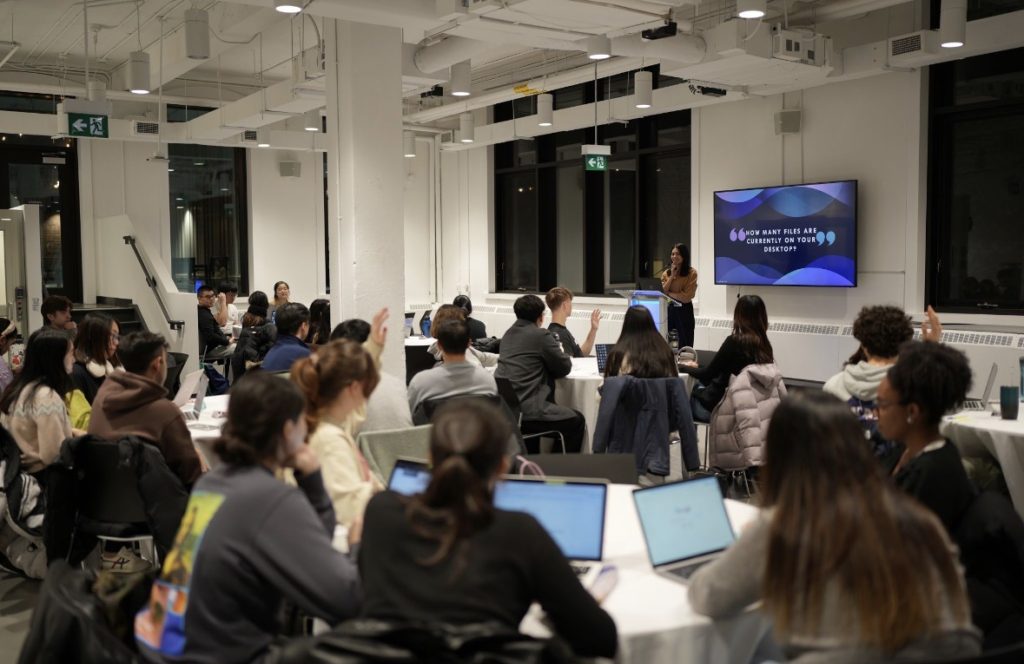Consult for Impact: RC students support Indigenous Box by driving business solutions

In the Winter 2025 semester, a group of Rotman Commerce students in the Consult for Impact (CFI) program had the opportunity to make a meaningful contribution.
Consult for Impact’s partnership with Indigenous Box
Consult for Impact (CFI) is a pro-bono experiential learning program offered by Rotman Commerce Student Life, connecting students with organizations to address real-world business challenges. The program empowers students to translate classroom learning into practical solutions that create meaningful impact for clients.

A recent project partnered CFI students with Indigenous Box, an Indigenous-led business that curates gift boxes filled with products from Indigenous entrepreneurs. Indigenous Box’s rapid growth introduced new complexity to managing its diverse network of Indigenous and small business suppliers. Operational hurdles and poor demand forecasting made it hard to meet customer needs.
The CFI team designed a vendor onboarding process and a supplier scorecard to improve accountability and tracking to support the company as it scaled. Through evaluations, they ultimately recommended software tools to strengthen vendor management and demand forecasting.
Amaya Chandra (BCom ‘26)“As a team, we conducted research, analysis, and developed practical, scalable recommendations tailored to Indigenous Box.”
Lessons from the field
Through this project, students gained a clearer understanding of the barriers many Indigenous entrepreneurs face. “It was interesting to learn about just how many Indigenous-led businesses were based in more rural areas and lacked access to sufficient capital to expand the scale of their operations, despite having more than enough demand to do so,” said Amaya Chandra (BCom ‘26), the team’s Senior Lead Consultant.
They were equally struck by Indigenous Box’s approach to supplier relationships, which contrasted with conventional distribution practices learned in the classroom.
Amaya Chandra (BCom ‘26)“We saw how much Indigenous Box cared about its Indigenous suppliers and worked collaboratively with them to set fair prices for their goods.”

The partnership was also immersive from the outset. Indigenous Box welcomed the CFI team into the company’s daily operations, including a virtual tour of its facility during their first meeting, which left a lasting impression.
“They dedicated quite a bit of time explaining everything and answering all of our questions in a way I’ve never seen before,” noted Amaya.
This hands-on exposure through the partnership offered powerful lessons to the CFI team in allyship, equity, and the importance of collaboration in supporting Indigenous-owned businesses.
Empowering action towards reconciliation
Beyond delivering practical tools to help Indigenous Box grow, the CFI project provided a deeper understanding of what steps towards reconciliation can look like in a business context.
Amaya observed, business—and particularly financial institutions—”have a massive role to play in empowering [Indigenous entrepreneurs] and their broader communities.”
The project also highlighted the need to move beyond symbolic gestures and focus on the systemic barriers Indigenous communities still face today. More often than not, conversations about reconciliation are centred around historical injustices rather than the inequities embedded in current systems. As Amaya reflected, “Continuing projects like these…is going to be key to a future where reconciliation means more than a quick land acknowledgement at the start of a presentation.”
We also encourage readers to consider supporting businesses like Indigenous Box when purchasing gifts for personal or corporate occasions, helping to strengthen Indigenous entrepreneurship in our community.
By Cammyn Lim (BCom ’26) | October 16, 2025
